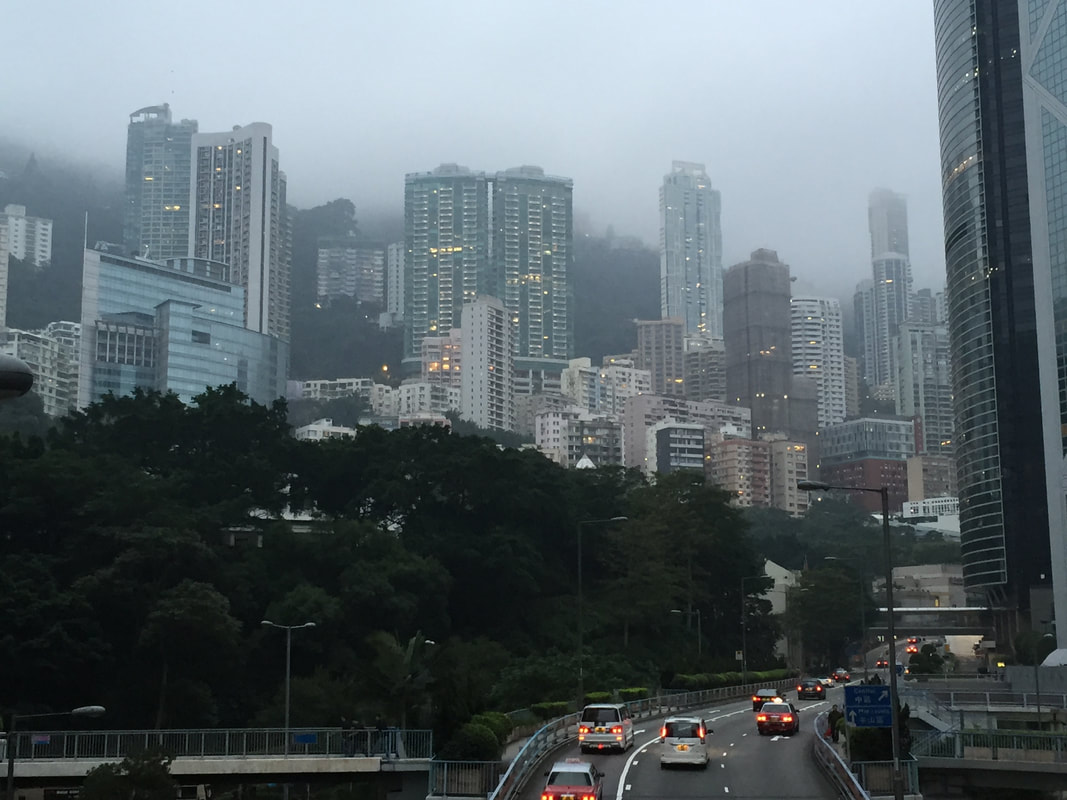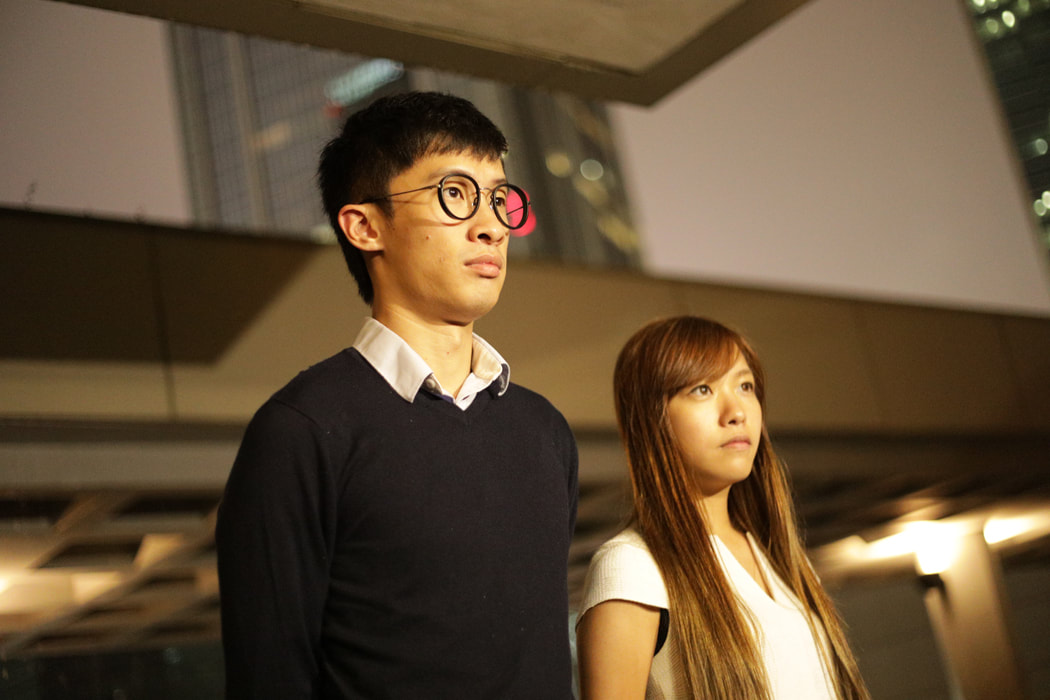|
While still a free and separate region, twenty years after the handover Hong Kong’s future is more uncertain than ever
June 30, 1997 was one of those rainy days that are typical for the summer months in Hong Kong, wet, humid weather with massive downpours that tend to render umbrellas useless. Light rain started as Governor Chris Patten said goodbye to his residence in the afternoon and a torrent of rain enveloped HMS Tamar where British Forces beat their retreat, culminating when the Prince of Wales delivered the Queen’s farewell notes. Mainland Chinese officials argued that the rain washed away the stain of colonialism, others pointed out that the Gods were crying as a free and prosperous Hong Kong was delivered to an uncertain future. Self Government Whatever it was, on that very day Chris Patten made it very clear what the new order would be after his departure: by stating that “now Hong Kong people are to run Hong Kong”. Not only was this the core belief on which he had staked his political legacy, it was vested in the territory’s constitution, the Basic Law. It basically said that Hong Kong would get to manage its own affairs and issues of defence and foreign relations fell into the lap of Beijing as the sovereign entity with ultimate control, a deal that is guaranteed to last until 2047, the fiftieth anniversary of the handover. The rationale for that timeframe was simple, Britain and China – at the time under Margaret Thatcher and Deng Xiaoping – agreed that China needed time to catch up with the city-state’s living standards and seamless integration of Hong Kong into the motherland would take some time. And that is why today, on the face of it, Hong Kong is still pretty much what it was twenty years ago: a self-governing entity separated by borders from mainland China and enjoying levels of freedom that are simply not present anywhere in the People’s Republic. Yet things have changed quite a bit since that rainy day twenty years ago. The Hong Kong press even before the handover started to self-censor while Beijing has kept a tight lid on elections, it remains impossible for pro-democracy anti-government parties to obtain a majority in the city’s parliament, the Legislative Council. What is more, its citizens do not have a say in who gets to be its Chief Executive, effectively Hong Kong’s leader who came to replace the job previously held by the British governor. The current leader, Leung Hun-ying, is, like the first chief executive Tung Chee-hwa, a Beijing friendly business leader, a background that is seen to balance the political need to remain close to the motherland while ensuring the interests on Hong Kong’s economy are met. Next week the job will go to Carrie Lam, the first woman to hold the position and a civil administrator who will face the near impossible task to succeed where all of her predecessors pretty much failed: to get the people of Hong Kong to at the very least accept, work with and place its trust in its own administration. It will require the one thing where businesspeople and civil administrators normally fail: applying political skills. And the reason for that simply is that they’re not elected, have never really campaigned and are thus not really in synch with what the people on the street want and expect. Back in the 1980s and 1990s Hong Kong’s powerful business elites solidly aligned themselves with the leadership in Beijing in order to ensure a stable business environment – which in Hong Kong means keep developing pricey real estate, unhindered. What is good for Hong Kong’s economy is good for local stability and that is best for the leadership in Beijing or so the reasoning went. China’s key strategic goal has always been to prove that integration into the mainland works so that the same model could be re-purposed for the main prize: peaceful re-integration of Taiwan into the People’s Republic. The warm relationship between Hong Kong’s wealthy elites and the Chinese leadership seems to have solidified the relative calm over the territory’s first twenty years under Chinese rule. But it was not always easy as China was well aware of the resentment towards the motherland. Beijing leaders reportedly were puzzled by statements from some business leaders in the run-up to the handover that ‘Hong Kong people were yearning to join the motherland again after years of colonial oppression’. Nothing of course was further reform the truth as the city-state’s population never saw itself as suffering under British rule, on the contrary. Hong Kong’s Identity One of the things that I recall from my Hong Kong days is the unambiguous way in which the former British crown colony’s residents define their status. In general they consider themselves to be Hong Kong residents or possibly Hong Kong Chinese, but that is more often to underline their ethnicity, not their nationality. Residents of Hong Kong are proud and when asked about it and will rarely if ever say that they are from China. And the reason for that is simple: most of them are not. In fact the very large majority of Hong Kong residents ran away from China during Mao’s reign of terror and their descendants through the years forged a very different identity, culturally and economically. Over 150 years of British rule created an ethnically diverse open market where trade, the rule of law and political stability created a turbocharged and self confident city state with its own dialect and customs that, had it not been for some historical flukes, would have remained a set of sparsely populated coastal islands with fisheries as the main economic driver. But while business and culture flourished, having over seven million people crammed on a small plot of land does pose its environmental challenges. Even during the end of British rule it had become clear that issues like housing, development and pollution could no longer be effectively handled by a benign colonial administration. In the wake of the handover it became even clearer that the interests of a Beijing-appointed business elite stood diametrically opposed to the wants and needs of a population that despite its growing wealth had a vested interest in ensuring that the city-state would remain livable. The call for more democracy and freedom was not a hollow one, it was a genuine quest to sit at the table and determine what Hong Kong should look like. There was limited interest in it from becoming a polluted metropolis much like other Chinese urban centers where development and economic growth trumped everything else. A quick health check with the Hong Kong Chinese diaspora in places like Sydney and Vancouver will tell you that the combination of political uncertainty and quality of life was more than enough to leave for better and above all greener pastures.
Protest
All of the discontent culminated in the 2014 street protests in Hong Kong that became known as the Umbrella Revolution, a series of street protests in reaction to Beijing tightening of Hong Kong’s electoral rules. Now Hong Kong has a long tradition of outspoken politicians and legislators who have made it their life’s work to ensure Beijing’s power is kept in check ranging from the feisty Emily Lau Wai-hing to the calm and measured Martin Lee. However, these were the more traditional pro-democracy personalities who despite their disdain for Beijing’s undemocratic approach sought to play within the unfortunately tight framework in which they had to operate, always facing a pro-Beijing majority. They accepted the hand they were dealt and managed to present Hong Kong’s as effectively as possible. But out of the Umbrella Revolution a new crop of youthful activists has emerged and they have been willing to take the debate a step further than the Lau-Lee generation. With some resounding wins during the 2016 legislative elections (which are essentially unwinnable against pro-government parties) some fresh young candidates pushed what now has become known as the ‘localist’ line: openly calling for Hong Kong’s independence from China. The most noteworthy ones were Sixtus "Baggio" Leung Chung-hang and Yau Wai-ching who both successfully contested seats in the election under a pro-independence banner. In doing so they were pursuing both a logical conclusion to Hong Kong’s post-umbrella pro-democracy movement while at the same time crossing the very line that is guaranteed to spell deep trouble: openly calling for secession from the Chinese motherland. They crossed the one line that no one was supposed to cross. And in opening the door to Beijing’s retribution both Leung and Yau were eventually disqualified from taking their seats after intentionally using their oath-of-office taking ceremony in the new legislative council to display their total disrespect for China as Hong Kong’s sovereign master. While their actions were qualified as ‘immature’ or ‘unnecessarily provoking’ both Leung and Yau thought it would be their one and only chance to make their pro-Hong Kong, pro-democracy case for all the world to see, while baiting China into showing its hand. And through their local intermediaries China did indeed take that bait. Beijing found a legal route to boot them out of their elected seats and the Hong Kong administrative apparatus dutifully complied to ensure that the territory’s elected body remained unanimously loyal to the motherland. Next? The localist movement was much like the Arab Spring or the populist movements that are shaking western democracies right now: a logical outcome of unleashing tensions that the system could no longer contain. And it was an outcome that was inevitable, the young Hong Kong protestors and localist activists not only acted out what they felt as citizens of Hong Kong, they demanded exactly what they were explicitly promised on that rainy day twenty years ago: that now it was the people of Hong Kong who would call the shots in their own home. And by showing their hand now the Chinese overlords made it abundantly clear that Hong Kong’s freedom to manoeuvre under the Basic Law is and will remain minimal. So we are into twenty years of ‘one country, two systems’ and in a way the countdown to the next benchmark date has started as thirty years is not all that far away. The Basic Law has no firm expiry date, but based on recent developments there is good reason to believe that on June 30, 2047, Hong Kong lose its unique position and will become what most have feared would be the most undesirable outcome: a Chinese city like any other. Personal Note: I lived and worked in Hong Kong in the 1992-99 period and witnessed the build up to the eventual handover and the first few years when the territory tried to find its way under its new sovereign rulers. I had the pleasure to meet both Chris Patten (his book ‘East and West’ about his time in Asia is highly recommended reading) as well as Tung Chee-hwa and to this day remain fascinated and intrigued by what I consider to be one of the best and most dynamic places on this planet. In a recent talk I branded Hong Kong 'turbo-cultural' which I define as 'a multicultural entity where ethnic differences are minimal and all potential tensions are subordinated to the greater good of economic success to which most, if not all, residents have access'. Photos: Cotton Tree Drive leading from Central up to the Mid-Levels on Hong Kong Island (photo from December 2015) and localist politicians Sixtus "Baggio" Leung Chung-hang and Yau Wai-ching.
0 Comments
Leave a Reply. |
Archives
April 2020
Categories
All
|


 RSS Feed
RSS Feed